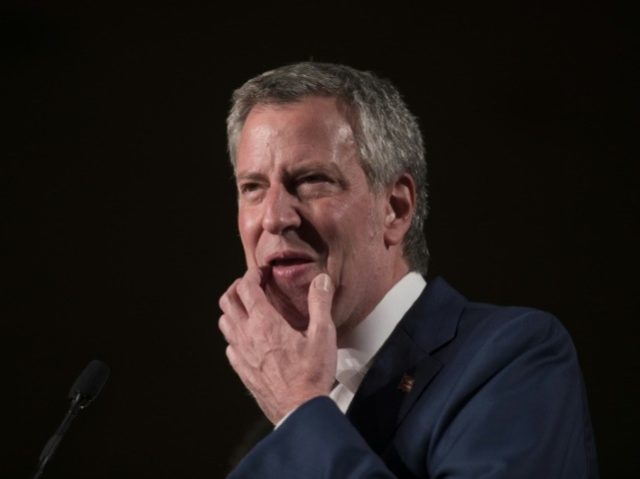New York Mayor Bill de Blasio is suing five major oil companies for causing bad weather in the hope of defraying part of the cost of much needed and overdue infrastructure work to protect against severe weather.
The City of New York has reportedly filed a federal claim seeking damages from BP, Chevron, ConocoPhillips, ExxonMobil and Royal Dutch Shell to help pay for a $20 billion plan to protect the city from the effects of global warming.
Although de Blasio’s lawyers have not yet revealed their legal strategy for the lawsuit, they will have to show a connection between the actions of the oil firms and real material damages. Since a suit cannot be brought over hypothetical future damages based on climate prophecies, the legal team will be obliged to link the behavior of oil companies to real events — such as Hurricane Sandy.
According to Politico, the de Blasio administration is suing for “reparations” from Sandy damages, and seeks to “force the companies to pay for the city’s resiliency efforts, which have taken years to complete since 2012, when the storm devastated the city, killing 53 people across the state costing more than $19 billion.”
Climate change advocates have recently insisted, however, that record cold temperatures in North America cannot be used as an argument against anthropogenic climate change, since no direct causality can be established between singular weather phenomena and climate change.
Event attribution — linking a given weather event to man-made global warming — is exceedingly speculative at best and completely unreliable at worst, even according to true believers.
At a meeting of climate scientists at Oxford in 2012, one participant argued that, given the insufficient observational data and the coarse and mathematically imperfect climate models used to generate attribution claims, they are “unjustifiably speculative, basically unverifiable and better not made at all.”
The science journal Nature felt compelled to conclude (with unusual modesty) that “better models are needed before exceptional events can be reliably linked to global warming.”
Or, as the National Oceanic and Atmospheric Administration (NOAA) declares, extreme event attribution “can’t tell us whether global warming ‘caused’ a specific event.”
A recent survey of climate change literature for 2017 revealed that the alleged “consensus” behind the dangers of anthropogenic global warming is not nearly as settled among climate scientists as people imagine.
Author Kenneth Richard found that during the course of the year 2017, at least 485 scientific papers were published that in some way questioned the supposed consensus regarding the perils of human CO2 emissions or the efficacy of climate models to predict the future.
According to Richard’s analysis, the 485 new papers underscore the “significant limitations and uncertainties inherent in our understanding of climate and climate changes,” which in turn suggests that climate science is not nearly as settled as media reports and some policymakers would have people believe.
Mayor de Blasio has drawn comparisons between oil companies and the tobacco industry, which knowingly profited from behavior they knew to be harmful. The difference, of course, is that numerous deaths were convincingly attributed to cigarette smoking. Whereas people have died from severe weather events since the beginning of recorded history, no death has yet been ascribed to manmade global warming.
Along with suing oil companies, the mayor has also announced his intention to sell off $5 billion in fossil fuel investments from city pension funds. According to officials, securities of fossil fuel companies currently make up less than three percent of New York’s $189 billion pension fund, which will eventually be reduced to zero.
Officials warned that the divestment process could take several years.
Follow Thomas D. Williams on Twitter Follow @tdwilliamsrome

COMMENTS
Please let us know if you're having issues with commenting.